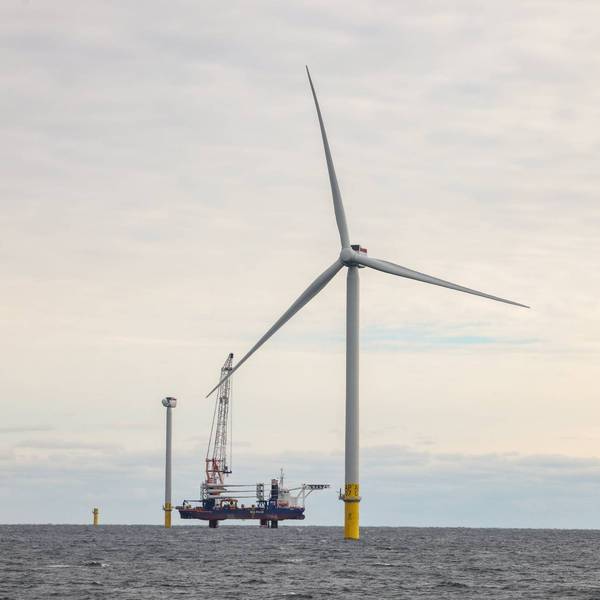While the oil and gas industry continues to push for expanded drilling operations off the Atlantic coast--and receives government subsidies for it--a new report by an ocean conservation group finds that the benefits produced by wind energy eclipse those of fossil fuels, with far fewer risks.
Many of the benefits touted by oil and gas companies do not hold up under scrutiny, according to the Oceana report, Offshore Energy by the Numbers: An Economic Analysis of Offshore Drilling and Wind Energy in the Atlantic (pdf). The industry often inflates its job creation figures by including inaccessible resources in their calculations, for example.
Eschewing those unrealistic measurements, Oceana instead compared "economically recoverable oil and gas development to conservative estimates of offshore wind development to allow an 'apples-to-apples' comparison of the energy and jobs that would be created by each source," according to co-author and Oceana energy analyst Andrew Menaquale.
Chief among their findings was that even a modest development of domestic offshore wind resources would "offer benefits that cannot be matched by offshore drilling."
Twenty years of wind energy could produce as much energy as five billion barrels of oil, the report says.
On a state-by-state basis, job creation projections increased as much as seven times more for wind energy than offshore drilling in all seven of the states being considered for fossil fuel extraction. In Florida, for instance, wind energy could create 28,317 lifetime jobs, while drilling would only produce 3,828. Overall, wind energy could create 71 percent more jobs than drilling across the entire Atlantic coast.
That figure comes at least in part due to the sustainability of wind energy--"when oil and gas runs out, so do the jobs," the report states.
Other key findings in the report are:
- In just 13 years, offshore wind could generate more energy than could be provided by all of the economically recoverable offshore oil and gas resources.
- In the next 20 years, offshore wind could create about 91,000 more jobs than offshore drilling (about double the job creation potential of offshore oil and gas).
- A modest and gradual development of offshore wind on the East Coast over the next 20 years could generate enough energy to power over 115 million households.
- Based on government estimates, if all of the economically recoverable offshore oil and gas in the Atlantic Outer Continental Shelf were extracted and used, oil demand would only be met for less than five months and gas demand would only be met for less than 10 months, at current consumption rates.
- The Atlantic Ocean contains less than 4 percent of the nation's total oil reserves and less than 3 percent of its gas reserves.
Moreover, the report notes that wind energy operations carry far fewer risks than fossil fuel extraction. Oil and gas drilling not only creates pollution as a byproduct of its operations, it also carries the danger of spills and other disasters.
In the three years following the catastrophic 2010 BP oil spill in the Gulf of Mexico, the Bureau of Safety and Environmental Enforcement reported that offshore drilling in that area and California alone "accounted for a total of 765 injuries, 10 deaths, 15 losses of well control, 348 fires/explosions and 11 spills of over 50 barrels."
The Bureau of Ocean Energy Management also estimates that seismic surveys carried out by oil and gas developers on the ocean floor of the Atlantic could disturb the vital activities of 13.5 million marine animals, such as whales and dolphins.
"Instead of working to fully understand the implications of rushing to develop offshore oil and gas, our elected officials are being blinded by imaginary short-term profits and missing the real opportunity that wind provides," Menaquale said.
The report comes amid heightened debate over environmental policies recently passed or currently under consideration by Congress, such as the large subsidies for oil and gas companies hidden in the so-called "Cromnibus" spending bill.
"Unlike offshore drilling, offshore wind provides power directly to coastal communities where we need energy the most, without the risk of oil spills or carbon pollution," said Menaquale. "It's time for the U.S. to use the lessons learned from more than 20 years of offshore wind development internationally and apply them to generating clean, renewable energy off our coasts."



